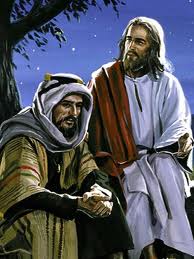This is another chapter in a book I am writing about Bible Study. I want to see if I can get any feed back on this book before finishing and publishing it. Learning how to study scripture should not be difficult to learn. So your comments and suggestions are appreciated. Don’t forget to subscribe for updates.
Chapter 13 Looking Back in Scripture
- Looking back for information works much the same way as introduction and teaches the same lesson the disciples had to learn when it came to healing and helping people. Looking back relies on God’s Word and His Spirit.
- Here is one of the most important Bible Study steps you want to learn and use:
Always look back to see how the author led into the event at hand. Most of us know in original scripture, neither the Old or New Testaments were divided into chapters and verses. That came much later. That has little to do with this rule, but to understand scripture, we have to look for patterns. One of those is how the author led from one event to the next.
 Looking back in scripture is much like looking back at the summary of a chapter to explain the main theme. The difference is, when you look back in scripture, you are normally looking back at how the previous chapter ended. In other words, you are comparing the introduction of one chapter to the summary in the previous chapter. This is a rather easy study method to learn, us, and teach.
Looking back in scripture is much like looking back at the summary of a chapter to explain the main theme. The difference is, when you look back in scripture, you are normally looking back at how the previous chapter ended. In other words, you are comparing the introduction of one chapter to the summary in the previous chapter. This is a rather easy study method to learn, us, and teach.
On some cases looking back to the first time that particular word, person, or thing was mentioned in the Bible can become a real asset. That is often referred to as the rule of first mention. In any case, the main theme and context of the stories has to be compared to ensure the same lesson is being addressed. I rarely use the rule of first mention.
The Gospels tell us to look back at scripture to find answers. Many of the same basic stories follow one another from one Gospel to the next, to the next. We have four chances to see the patterns and sequences. If we miss those, it is not God’s fault.
Some of the stories in the Bible were not recorded in the same order. One Gospel will contain information others do not. One Gospel may omit information found in the other three. Some people are alarmed or concerned about that fact. What we need to do is set aside the questions the world asks and concentrate on what we have in the Bible. One series of stories may be easy for you to relate to the first time you read them, and another series of stories may be easier for me to relate to. The Bible is designed to reach billions of people over a number of generations, and all those people are on different learning levels. Learning from the Bible has to be direct as well as personal. Using different story arrangements seems to be one of the most effect manners to accomplish such a task.
We almost never pick up on all the lessons in the Bible the first time we read through it. There are times we get to one story and it seems we can’t understand a thing. Our mind is filled with questions, and we have no idea where to turn for the answers. If we paid attention, we would know those questions are placed in our heads by the Holy Spirit. Those questions are telling us, we missed something and need to go back and review previous stories. It is as simple as that.
Why is it important to look back in scripture? Not only will looking back in scripture provide the answers we are looking for, looking back will also teach us an important lesson about how God’s Spirit communicates with this world. You can look back at your own life at any moment to see how God has been trying to communicate with you.
When you finally decide to pray and look back in your life, you will see a series of events, a series of choices, and your present life will show the results of those choices. You have to learn a few things before you can hear the connection between the Holy Spirit and your life. You have to learn to be totally honest, humble, and how to listen when you pray.
When you open up your ears in prayer and look back in your life, you will hear about choices you were offered, both sides of those choices. You will also hear about the warnings Jesus tried to send, but you may have ignored them. While praying, you will be amazed at the perfect order those thoughts and memories enter your mind, and how detailed those memories become. You will actually be able to see how things would have turned out if you made different choices. Especially if you finally understand those warnings you chose to ignore. Jesus will go over a series of warnings He sent to show you, He was always there. You may have missed those warnings, or written them off as something that was not related to the decision at hand. Or you may have made up your mind on the matter and nothing was going to change your decision. That is when pride steps in and common sense flies out the window. That is why it takes so much effort to look back and understand the warnings that were ignored. Pride has to be done away with. Which may not be easy for some people.
 Looking back in your life may be the biggest and most exciting blessing you may ever receive. At times it may not be easy. And Jesus will not skip over the times you let Him down, ignored His warnings, and refused to help one of His brothers or sisters. People don’t want to face that type of conversation with Jesus. That is a sort of fear you have to learn how to overcome. It can be done. Putting aside your pride will show you, Jesus has something far better to replace that void. Looking back on your life can bring such a peace you will wonder why you have not been doing that your entire life.
Looking back in your life may be the biggest and most exciting blessing you may ever receive. At times it may not be easy. And Jesus will not skip over the times you let Him down, ignored His warnings, and refused to help one of His brothers or sisters. People don’t want to face that type of conversation with Jesus. That is a sort of fear you have to learn how to overcome. It can be done. Putting aside your pride will show you, Jesus has something far better to replace that void. Looking back on your life can bring such a peace you will wonder why you have not been doing that your entire life.
This series of chapters in this book will show you how to look back in scripture. You will see how people in the Bible missed warnings, didn’t listen to Jesus or God, made the wrong choices, and the results of those choices. You will also see how Jesus gave people a second chance to look back in their lives, realize the mistakes they made, and ask to be forgiven.
